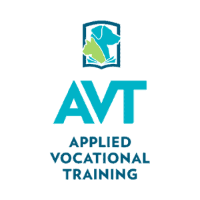
This role has a low level of AI exposure. Core skills such as adaptability, social intelligence, and complex physical tasks remain beyond the capabilities of current AI.
Explore all careersAn Animal Trainer teaches commands and behaviours to various animals, educates owners on training strategies, and requires patience, skill, and communication.
Get qualified to work as an Animal Trainer with a course recognised across Australia. Speak to a training provider to learn more.











In Australia, a full time Animal Trainer generally earns $1,250 per week ($65,000 annual salary) before tax. This is a median figure for full-time employees and should be considered a guide only. As you gain more experience you can expect a potentially higher salary than people who are new to the industry.
 Courses.com.au Team
Courses.com.au Team
The number of people working in this industry has decreased in recent years. There are currently 4,100 animal attendants in Australia and many are employed as Animal Trainers. Animal Trainers may find work in all regions of Australia.
Source: Australian Government Labour Market Insights
 Courses.com.au Team
Courses.com.au Team
If a career as an Animal Trainer interests you, consider enrolling in a Certificate IV in Companion Animal Studies. This course covers a range of topics such as training animals and animal care. You’ll learn to work with a range of animals including dogs, cats, birds and mammals.
 Courses.com.au Team
Courses.com.au Team
Browse occupations related to Animal Trainer



If you are considering a career as an animal trainer, the Animal Trainer courses in Dubbo offer an excellent opportunity to gain the skills and knowledge necessary for this rewarding profession. With a focus on hands-on learning, these courses cater to individuals passionate about animal welfare and training. Dumbo is home to several leading training providers, ensuring that you receive quality education tailored to the unique needs of the local community.
One of the prominent training providers in Dubbo is the Taronga Training Institute, which offers the Certificate II in Animal Care. This qualification is particularly beneficial for those looking to develop foundational skills in animal care and training. By enrolling in this course, you will gain practical experience working with various animal species, which is essential for a successful career in animal training. This course not only prepares you for the job market but also opens up pathways for further studies in the field.
The Animal Welfare and Veterinary courses link closely to the animal training profession, providing essential knowledge about animal behaviour and care standards. Additionally, those interested in specialised training techniques can explore Animal Training courses, which delve deeper into effective methods of training various animals. By pursuing these studies, graduates will find themselves well-prepared to enter the workforce with a solid understanding of both the theoretical and practical aspects of animal training.
Located in the heart of New South Wales, Dubbo is well-positioned for individuals eager to study animal training. The local community values the significance of animal welfare, making it an ideal environment for aspiring animal trainers to acquire their skills. With a limited number of Animal Trainer courses in Dubbo, students benefit from smaller class sizes and more hands-on training opportunities, fostering a supportive educational atmosphere that is hard to find elsewhere.